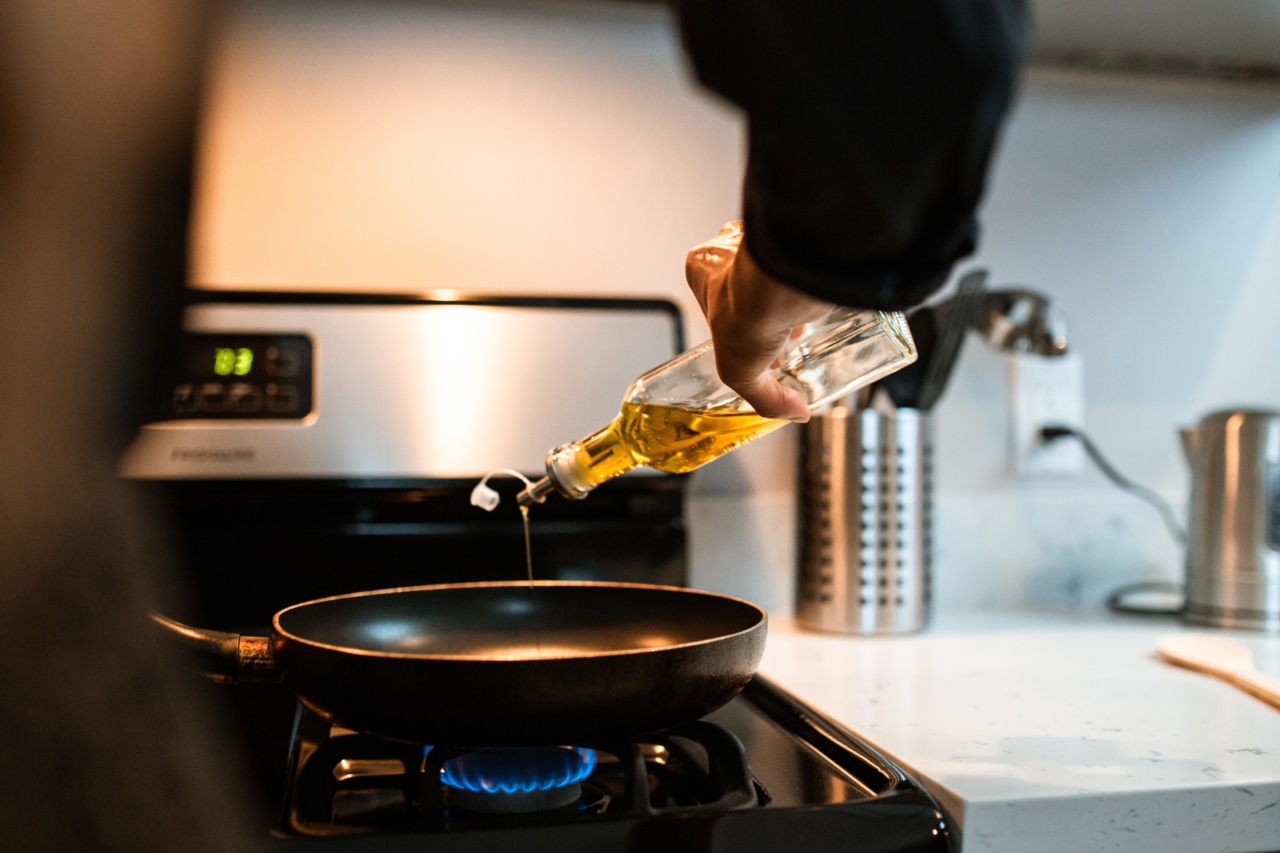Olive oil is a versatile and healthy cooking oil that is a staple in many kitchens around the world.
While it is filled with numerous health benefits and adds a unique flavor to dishes, there are several mistakes that people often make when using olive oil. In this article, we will explore eight common mistakes to avoid to ensure you get the most out of your olive oil.
1. Storing Olive Oil Incorrectly
One of the biggest mistakes people make with olive oil is storing it incorrectly. Exposure to oxygen, heat, and light can cause the oil to spoil faster and lose its flavor and nutritional properties.
It is important to store olive oil in a cool, dark place, away from direct sunlight or heat sources. Consider using a tinted glass bottle or a ceramic container to protect it from light.
2. Buying Low-Quality Olive Oil
The quality of olive oil can vary significantly, and many people unknowingly buy low-quality oils. Look for labels that indicate the oil is extra virgin, cold-pressed, or made from fresh olives. These labels guarantee a higher quality product.
Avoid oils labeled as “light” or “pure,” which often indicate a lower quality oil that has been refined and stripped of its natural flavors and nutrients.
3. Using Olive Oil for High Heat Cooking
Olive oil has a relatively low smoke point compared to other oils, which means it can easily break down and produce harmful compounds when exposed to high heat.
It is best to use olive oil for low to medium heat cooking or for adding flavor to dishes after they have been cooked. For high heat cooking methods such as deep frying or searing, opt for oils with higher smoke points like avocado or grapeseed oil.
4. Not Checking the Expiration Date
Just like any other food product, olive oil has an expiration date. Over time, the oil will start to lose its flavor and antioxidant properties.
Always check the expiration date before using the oil and make sure to use it within a reasonable timeframe to enjoy its full benefits. If the oil smells off, has a rancid taste, or appears cloudy, it is best to discard it.
5. Using Olive Oil for Prolonged Frying
While olive oil can be used for frying, it is not recommended for prolonged frying or multiple reuses. Each time oil is heated and cooled, it undergoes chemical changes that can degrade its quality.
Olive oil is best suited for quick sautéing or shallow frying. If you need to fry food for an extended period, consider using oils specifically designed for high-heat frying.
6. Not Pairing Olive Oil with the Right Foods
Olive oil comes in different flavor profiles, ranging from mild to robust. Each type pairs better with certain foods.
For example, a delicate olive oil with subtle flavors is ideal for drizzling over salads or using in marinades, while a robust oil with a peppery taste can enhance the flavors of grilled meats or hearty stews. Experiment with different types of olive oil and explore their unique pairing possibilities.
7. Not Using Olive Oil for Beauty and Health
Olive oil is not just limited to cooking. It has numerous beauty and health benefits as well. Olive oil can be used as a natural moisturizer for the skin and hair, as a makeup remover, or as a soothing ingredient in homemade face masks and scrubs.
It is also rich in antioxidants and healthy fats, which promote heart health and can help lower the risk of certain diseases when consumed as part of a balanced diet.
8. Overusing Olive Oil
While olive oil offers numerous health benefits, it should still be consumed in moderation. Olive oil is calorie-dense, and excessive consumption can contribute to weight gain. The recommended daily intake of olive oil is about one to two tablespoons.
Be mindful of the amount you use in cooking and dressings to maintain a balanced diet.





























